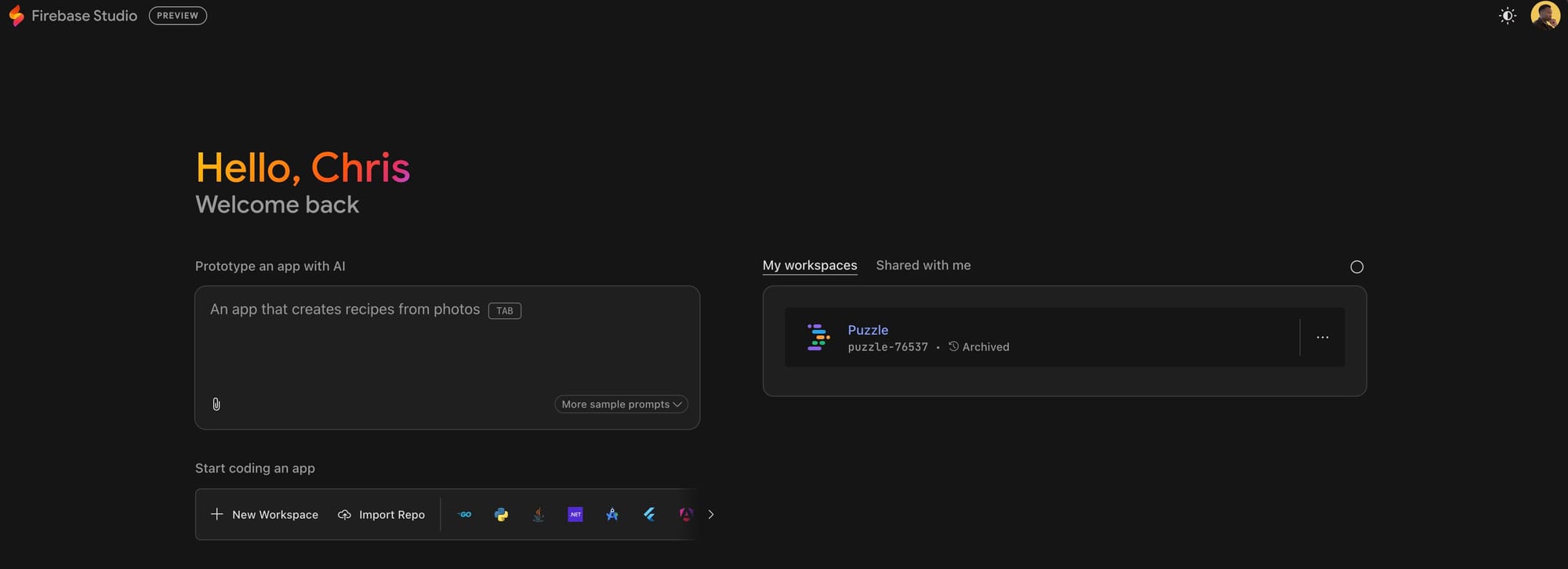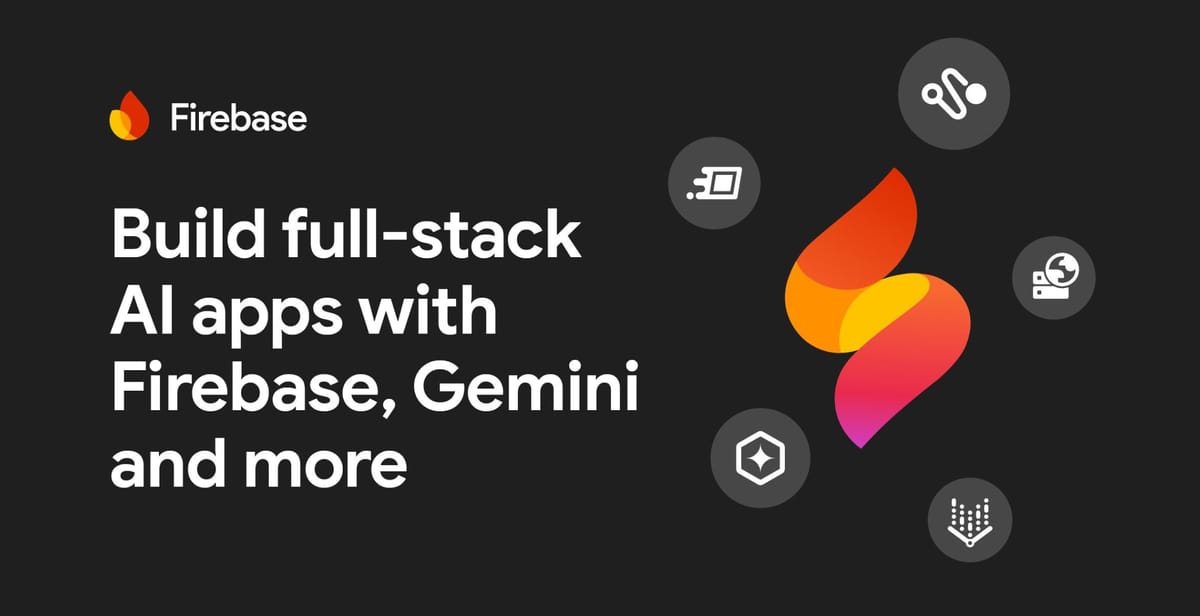Google is rolling out Firebase Studio, a cloud-based development environment that brings Gemini-powered AI agents, customizable coding workspaces, and end-to-end deployment tools into a single browser tab.
Key Points:
- Firebase Studio combines prototyping, coding, and deployment in a single browser-based IDE
- Gemini in Firebase provides always-on AI assistance across the entire development workflow
- Developers can generate full apps from natural language, images, or drawings

Firebase Studio fuses together Google’s earlier work on Project IDX, Genkit, with their Gemini AI models into a unified workspace. Developers can start by describing an app idea in plain English—or even by sketching a layout—and the App Prototyping agent will spin up a functional Next.js web app, complete with frontend, backend, and AI components. From there, users can iterate with Gemini’s coding assistant or dive into the code directly using a VS Code-compatible IDE hosted in the cloud.
The appeal here is less about any single feature and more about the complete, integrated experience. Firebase Studio doesn’t just assist with code—it helps manage the full lifecycle: version control, testing, emulation, deployment, monitoring, and collaboration. It even lets teams share the entire development environment via URL. For developers burned out by cobbling together CI/CD pipelines, local test environments, and cloud infrastructure, Firebase Studio promises something simpler: a single, powerful, AI-enabled sandbox that scales from prototype to production.
The TL;DR you've been waiting for. Here's everything big from Firebase at #GoogleCloudNext!
— Firebase (@Firebase) April 9, 2025
💻 Firebase Studio in preview
🤳 App Testing agent in preview
🎉 Firebase Data Connect and Firebase App Hosting in GA
🔊 Live API for Gemini models in Vertex AI in Firebase
➕ Genkit now… pic.twitter.com/BnKtGQ0JHC
Gemini in Firebase is baked into every step of the process. It helps write and debug code, manage dependencies, generate unit tests, and provide documentation. A growing roster of Code Assist agents will soon join the mix, with early access available now for tools like an AI testing agent and a migration helper. Google is also expanding support for multimodal inputs—think audio, images, and screenshots—as well as offering tighter integration with Genkit for building AI-powered features like retrieval-augmented generation and model orchestration.
Firebase Studio supports most popular web and mobile frameworks—React, Angular, Vue, Flutter, Android, and more—and can be customized extensively using Nix. Developers can deploy via Firebase App Hosting or integrate with Google Cloud Run and their own infrastructure. It also includes out-of-the-box templates for dashboards, appointment systems, chat apps, and other common patterns.
This is a direct shot at the growing category of AI development environments like Replit, Cursor, and Bolt. But Google has the advantage of owning the stack—from its AI models and cloud infra to Firebase’s backend services and tooling, which already powers over 70 billion app instances daily according to the company. That vertical integration could prove decisive for teams looking to ship fast without sacrificing scale.
Google is offering Firebase Studio in preview with three free workspaces per user, with Google Developer Program members receiving up to 30 workspaces. While the base service is free, certain integrations like Firebase App Hosting require a Cloud Billing account.

